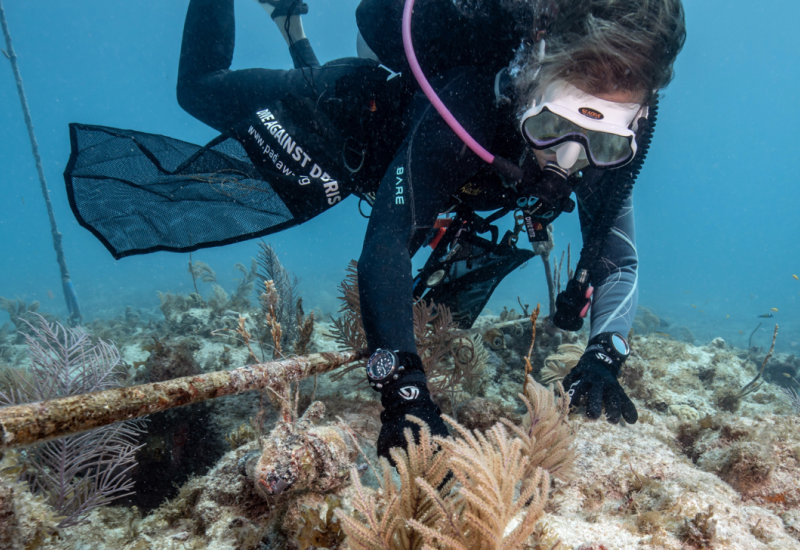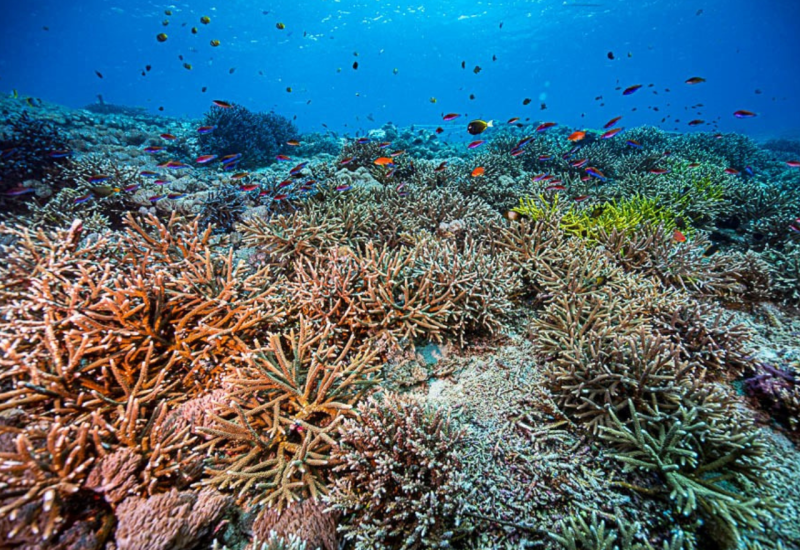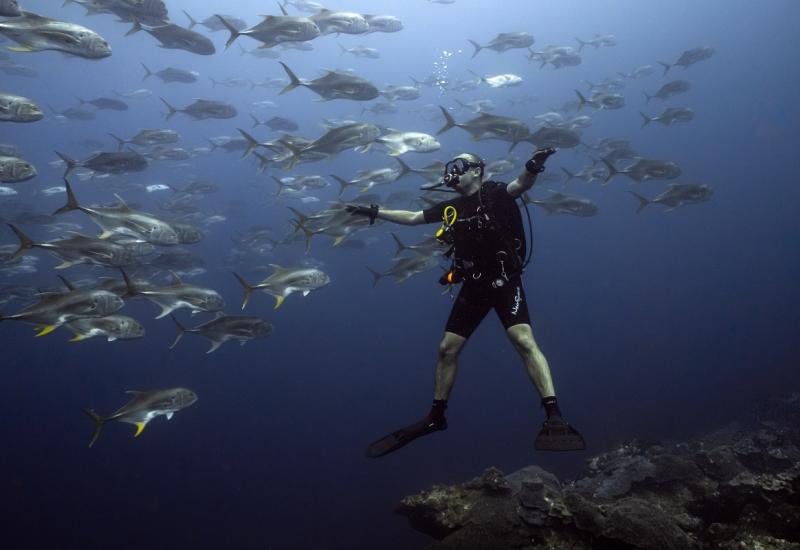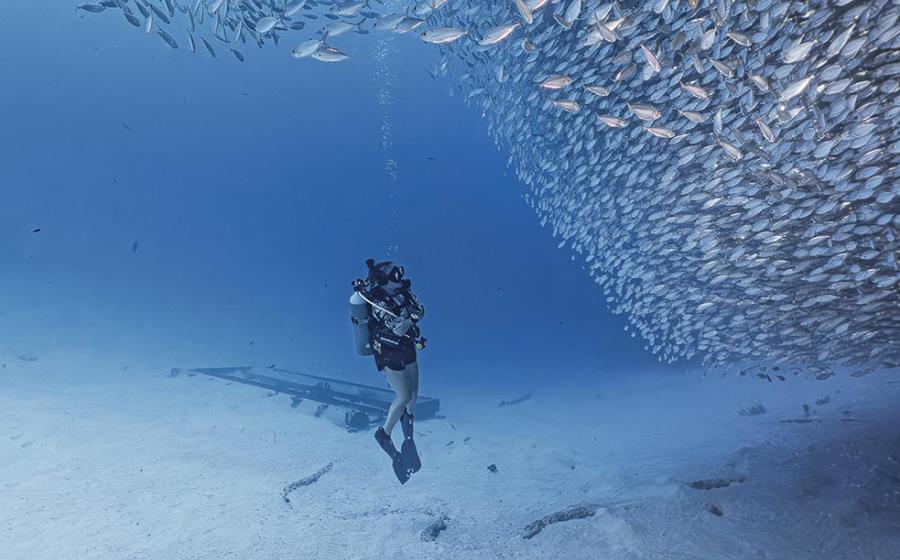How Well-Intentioned Divers Are Hurting Shark Conservation

Dudarev Mikhail/shutterstock.comLearning the facts is the first step to effective conservation.
As a marine conservation biologist, I love speaking to scuba divers—most love the ocean and really want to do whatever they can to protect it. However, as I note every month in the “about this column” section below, the nitty-gritty details surrounding complex global problems can be confusing to concerned community members who don’t have a Ph.D. in this stuff, which often results in well-intentioned but uninformed people doing more harm than good.
For whatever reason, shark conservation tends to attract the worst of this. In this month’s Science Stop column, I’d like to highlight three problematic behaviors I frequently see from well-intentioned divers, and suggest alternatives that will actually help.
1. Signing useless online petitions
Online petitions like those made by Change.Org or ThePetitionSite.com spread like wildlife through social media. It’s easy to see why: They promise you the ability to help by just signing your name.
However, the majority of these that are made by people unaffiliated with a non-profit cannot possibly help accomplish their stated goals because of basic errors. When I lived in Florida, I saw dozens of online petitions calling for Florida to ban shark finning, which is beyond useless because Florida did ban shark finning in 1994. One of these petitions asked the UN to ban shark finning in Florida, while another asked President Obama to do so, demonstrating a lack of understanding of jurisdiction that would make the goal impossible to achieve through these means.
These petitions, which regularly get tens of thousands of signatures, contribute to large-scale public misunderstandings about the issues. They also take resources away from successful ways to engage with these issues—I asked acquaintances who had signed these petitions to get involved in shark conservation in other ways and they all reported they had no time.
A petition written by expert environmental activists as part of a larger campaign can help give extra ammunition to a well-thought-out conservation campaign, but a stand-alone petition written by a non-expert will almost always fall flat.
INSTEAD OF SIGNING USELESS ONLINE PETITIONS, consider: submitting formal public comments to proposed National Marine Fisheries Services regulatory changes.
In the U.S., natural resource management regulations are changed through a participatory process, if you submit a formal public comment they are legally obligated to consider and respond to it (they have no obligations whatsoever for an online petition). These online petitions get tens of thousands of signatures; it’s not uncommon for a NMFS regulatory change to receive zero public comments from the pro-environment side. It’s important that you don’t submit meaningless public comments like “save the sharks,” but instead say things like “I oppose amendment 5B because it doesn’t consider scenario 4, and instead support amendment 6A.” This can be complicated, but if you follow the lead of experienced professional non-profits you’ll have this information—you don’t need to figure it out on your own!
2. Creating conservation non-profits without knowing the facts
I am often approached by concerned scuba divers who asks for my advice in how to effectively create a new shark conservation non-profit. These folks are deeply concerned about sharks and want to help fix things, which is great!
However, they often don’t have the necessary education, training or experience with respect to the details of the problem, making it nearly impossible to craft a workable solution, advocacy or law. That’s not great.
Perhaps worse still, when I ask, “What are you planning on doing differently from the many other groups in this crowded space?” many report not being aware that there were other similar shark conservation organizations. Watching a documentary or diving with sharks a few times is no substitute for training and experience with policy-relevant science, environmental law and associated advocacy.
At best, these small non-profits will distract attention, resources and donations away from more experienced non-profits; at worst they make the problem worse by “raising awareness” for wrong information.
I want to be absolutely clear here that I’m not saying you need to have a Ph.D. and a law degree and 20 years of experience advocating for conservation policy change to help the oceans. However, if you don’t understand the details of the problem, you don’t understand the details of the available solutions and you don’t understand the process by which policies change, then maybe you shouldn’t take the lead and be the public face of ocean conservation advocacy.
INSTEAD OF CREATING YOUR OWN NON-PROFIT, consider: helping existing experienced reputable non-profits with a track record of success.
A reputable non-profit either employs or works with experts who understand the problem, the solution and the process by which policy change occurs—there’s no need for non-experts to reinvent the wheel when professionals who are already doing this stuff successfully need your help. Follow them on social media or sign up for their mailing lists to get regular updates on how you can help.
3. Wildlife harassment as “public education”
There are entirely too many people who believe that poking, grabbing, riding or otherwise bothering sharks somehow counts as educating the public about why we need to protect sharks. It does not.
The concept of annoying an animal just to show others that it won’t kill you is not a useful or coherent message. This is wildlife harassment. In many places it’s illegal; in zero places is it necessary or helpful. It absolutely causes harm to sharks even if non-experts claim that “if the shark didn’t like it, it would swim away." And while wildlife harassment certainly isn’t ethically the same thing as sexually harassing humans, I find myself extremely creeped out by all the people who defend this behavior with some version of “in my opinion the shark likes it.” Don’t bother wildlife just to get a cool picture with it, don’t claim that doing so is somehow helpful for conservation and don’t idolize people who do these things.
INSTEAD OF HARASSING WILDLIFE, consider: just, like, not doing that.
Look but don’t touch is a key part of impact-free scuba diving. You learn it in your open water diver course, and it’s reiterated in things like the WWF best practices guide for shark diving.
About David Shiffman
Dr. David Shiffman is a marine conservation biologist specializing in the ecology and conservation of sharks. An award-winning public science educator, David has spoken to thousands of people around the world about marine biology and conservation, and has bylines with the Washington Post, Scientific American, New Scientist, Gizmodo and more. Follow him on Twitter, Facebook and Instagram, where he’s always happy to answer any questions about sharks. Please direct any questions or hate mail to [email protected].

Josh LibermanDr. David Shiffman
About Science Stop with Dr. David Shiffman
Before you surface from a deep scuba dive, you make a safety stop. Before you take a deep dive into the complicated world of ocean conservation, I encourage you to make a science stop by reading this column. The global environmental challenges we face can seem overwhelming, and concerned citizens, especially people like scuba divers who love spending time in the ocean, want to help do their part to fix these problems. However, with lots of conflicting, misleading or just plain wrong information out there about environmental problems and how you can help solve them, it can be hard to know how to help. In some cases, well-intentioned but misinformed activists not only fail to help solve a problem, but can actually make the problem worse, or harder to solve! Put simply, if we’re going to fix the massive problems facing the ocean, the details matter, and those details can be confusing! In this monthly column, my goal is to teach you the true scientific facts behind some of the most pressing threats facing the ocean and the solutions experts believe will help solve them. I will also try to dispel common misconceptions about these threats and their solutions.










